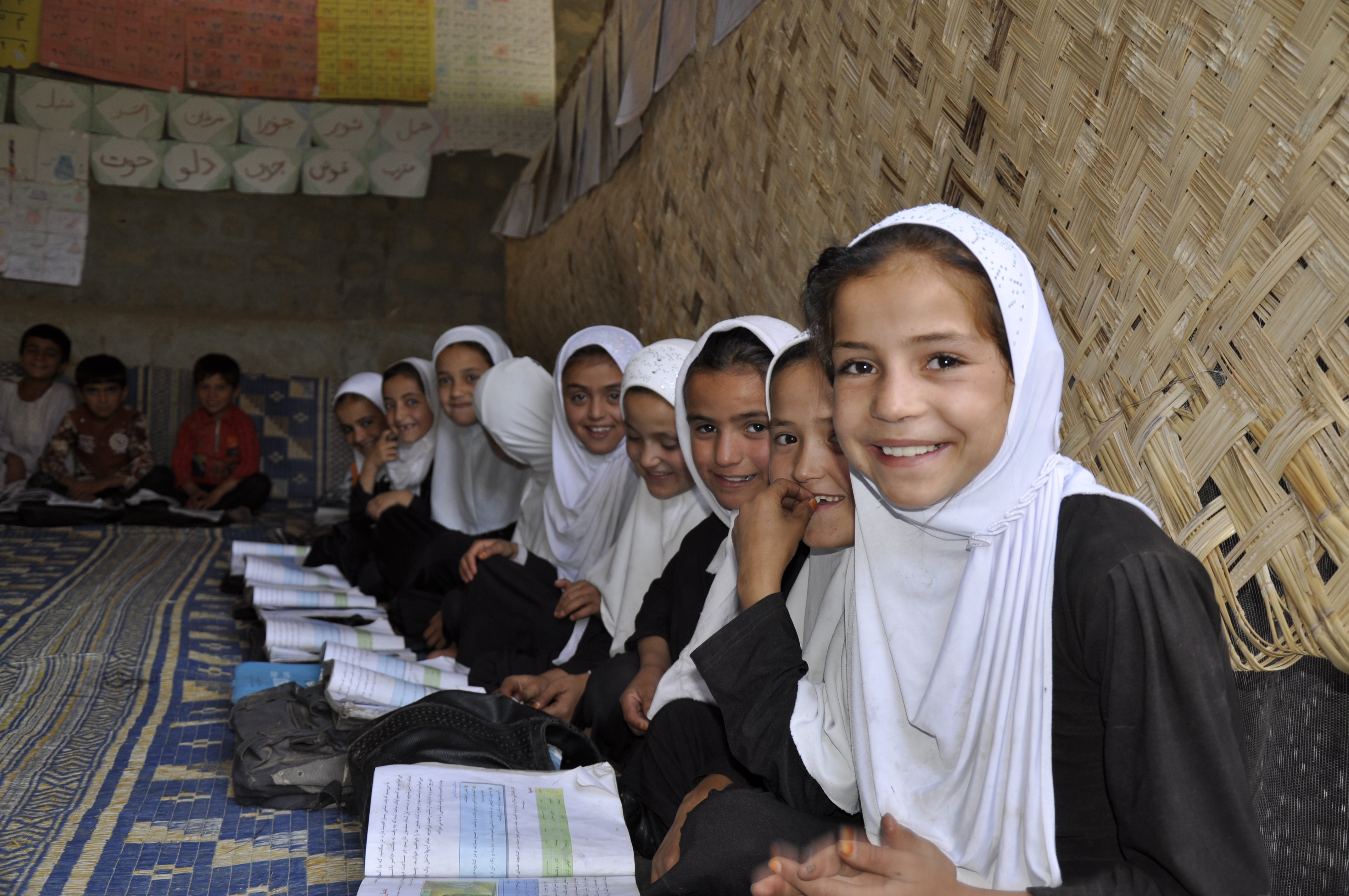Schools give hope and challenge stereotypes

The rural schools SCA operates do not only give tens of thousands of children the opportunity for a better future. They are also changing the image of society, and what roles men and women are expected to play.
A statistician would argue that four visits is too little to draw a firm conclusion. But three visits to rural schools SCA operates in the district Keshem and one in a school just outside Taloqan gives a clear picture:
First, everybody praises SCA and the way the organization is contributing; school books, school supplies, salaries for teachers, quality control and training for teachers. School textbooks are in place when the semester begins. The teachers gets punctually paid. It is of course common that someone who is perceived as a representative for the donor get to hear praise. But this time is clearly and coherently.
Second, the whole local community is committed to their school. Parents are digging latrines, and are active in trying to resolve any problems that crop up in schools. It is the villagers that provide the school facilities.
“Most people here in the village have no education. But we want our children to have the possibility to study, says Hassibullah who is the chairman of the School Management Committee in one of the villages.
Thirdly, it seems like the perception that education is only for boys, and not for girls, has completely disappeared. Students, teachers, principals, parents or SCA’s employees do not meet more than a few individuals that are against girls’ right to education. But then it is perhaps best to add that there are other areas of Afghanistan where people have more conservative views.
Finally, everyone without exception agrees that the biggest problem is the lack of good school facilities. Since the villagers provide the school buildings, and there is not enough money to construct proper buildings. Instead villagers rent space in old farmhouses or whatever they manage to find. The students are crowded into basements, up on the loft and sometimes have lessons outdoors. Every classroom is beautifully decorated with materials that teachers learned to manufacture at the trainings SCA is providing. But the premises have overall low standards and the message sent to SCA is very clear: Help us to build a new school!
“I have seen the school in town and I wish we could have a similar”, said Mohammad Qurban, an orphan boy, 10 years old.
The concept is called Community Based School (CBS). This means that SCA supports schools in communities where the government has no school within a reasonable distance. When the kids get older they move over to a regular school. It can sometimes occur already after the third grade, but I saw examples of students who remain in the CBS until the ninth grade.
Those children who are lucky enough to go on a CBS driven by SCA in the areas I visited can expect to meet well-trained and motivated teachers. They get real school books in a school where there is an international organization that, together with the local community, cares about the quality of education. In public schools, children often experience big classes and teachers who do not care. And then there are of course children who live in areas where there is no school at all.
SCA is working hard to bring in more competent teachers. Gradually replacing low-skilled men with trained teachers. The majority of the new teachers are young women. In the schools run by SCA’s office in Taloqan, you find close to 60 percent women among teachers. In other provinces where SCA provides education, the percentage is not as high. Most of the new female teachers have passed a two-year teacher training, some even have university degree. They are competent and highly motivated to do a good job.
“The young women are very important in the villages. Both the children and the villagers become aware that women can educate themselves and take skilled jobs, says Sayed Mukhtar responsible for the Education programme at SCA’s office in Taloqan.
Obidah, 24, is one of those teachers who not only spreads knowledge but just by being who she is changing the perception of how society works, and the roles that men and women are supposed to have. She has a strong charisma when she stands in front of the blackboard. Unlike the shy schoolgirls she doesn’t cast down her eyes when she meets a foreign man. And she does not mind being photographed, at least not as long as the pictures are published in foreign media.
“This is a holy job. We are here because we want to be here, says Obidah.